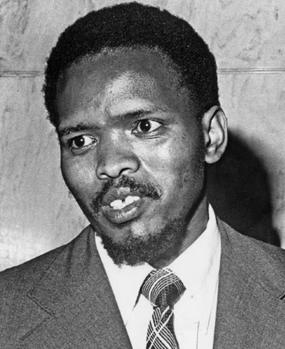Amílcar Lopes Cabral (Bafatá, Guiné-Bissau, 12 de setembro de 1924 - Conacri, 20 de janeiro de 1973) foi um político da Guiné-Bissau e de Cabo Verde.
terça-feira, setembro 12, 2023
Amílcar Cabral nasceu há 99 anos
Amílcar Lopes Cabral (Bafatá, Guiné-Bissau, 12 de setembro de 1924 - Conacri, 20 de janeiro de 1973) foi um político da Guiné-Bissau e de Cabo Verde.
Postado por
Fernando Martins
às
09:09
0
bocas
![]()
Marcadores: Amílcar Cabral, assassinato, Cabo Verde, Guerra Colonial, Guiné-Bissau, Guiné-Cronacri, PAIGC
A gruta de Lascaux foi descoberta há 83 anos...!
Postado por
Fernando Martins
às
08:30
0
bocas
![]()
Marcadores: espeleologia, França, grutas, Lascaux, Paleolítico, pinturas rupestres, Pré-História
O tratado de Alcanizes foi assinado há 726 anos...!
- Campo Maior
- Olivença (hoje administrada por Espanha, ver Questão de Olivença)
- Ouguela
- São Félix dos Galegos (hoje na posse de Espanha)
Postado por
Fernando Martins
às
07:26
0
bocas
![]()
Marcadores: Castela, fronteiras, Olivença, Portugal, Riba-Côa, Tratado de Alcanizes
Neil Peart, o já desaparecido baterista dos Rush, nasceu há setenta e um anos
Postado por
Fernando Martins
às
07:10
0
bocas
![]()
Marcadores: bateria, Big Band, Canadá, hard rock, heavy metal, jazz, Limelight, música, Neil Peart, Rock Progressivo, Rush, swing
Randy Jones, o cowboy dos Village People, celebra hoje 71 anos
Randy Jones (Raleigh, North Carolina, September 13, 1952) is an American disco and pop singer and best known as the cowboy from Village People from 1977 to 1980, and again from 1987 until 1990.
Jones attended William G. Enloe High School in Raleigh, North Carolina and graduated in 1970. While there, he was a founder of Enloe's Drama Club, which was then called Amicus Scaena, Latin for "friend of scene" or "friend of theatre". He then studied at North Carolina School of the Arts before moving to New York.
Jones had a marriage ceremony with his boyfriend of 20 years, Will Grega, at a New York City club on May 7, 2004. Although the marriage was not legally binding at the time, as gay marriage was not yet recognized in New York State, Jones commented, "It's only a matter of time before the courts rule in favor of what's morally right and humanly decent." The pair had published a book together in 1996, titled Out Sounds: The Gay and Lesbian Music Alternative.
In 2007, he released a disco and pop solo album Ticket to the World. In 2009, he appeared on Flight of the Conchords in their music video for "Too Many Dicks".
Jones appears as himself in the 2011 video game Postal III.
In 2014, Jones appears as Tiberius in the Off-Broadway musical, The Anthem. The production was directed and choreographed by Rachel Klein, with a book by Gary Morgenstein, lyrics by Erik Ransom, and music by Jonnie Rockwell. The production performed at the Lynn Redgrave Theatre in New York City.
In 2017, he released "Hard Times", the first single from the album, Still Makin' Noise. The single reached number 42 on the Billboard Dance Club Songs chart, and was the first chart placement from any member of the Village People as a solo artist.
Postado por
Fernando Martins
às
07:10
0
bocas
![]()
Marcadores: disco, homossexuais, música, pop, Randy Jones, Village People, YMCA
Barry White nasceu há 79 anos...
Postado por
Fernando Martins
às
07:09
0
bocas
![]()
Marcadores: Barry White, disco, funk, música, Practice What You Preach, soul
O discurso "We choose to go to the moon" foi proferido há 61 anos
We set sail on this new sea because there is new knowledge to be gained, and new rights to be won, and they must be won and used for the progress of all people. For space science, like nuclear science and all technology, has no conscience of its own. Whether it will become a force for good or ill depends on man, and only if the United States occupies a position of pre-eminence can we help decide whether this new ocean will be a sea of peace or a new terrifying theater of war. I do not say that we should or will go unprotected against the hostile misuse of space any more than we go unprotected against the hostile use of land or sea, but I do say that space can be explored and mastered without feeding the fires of war, without repeating the mistakes that man has made in extending his writ around this globe of ours.There is no strife, no prejudice, no national conflict in outer space as yet. Its hazards are hostile to us all. Its conquest deserves the best of all mankind, and its opportunity for peaceful cooperation may never come again. But why, some say, the Moon? Why choose this as our goal? And they may well ask, why climb the highest mountain? Why, 35 years ago, fly the Atlantic? Why does Rice play Texas?We choose to go to the Moon! ... We choose to go to the Moon in this decade and do the other things, not because they are easy, but because they are hard; because that goal will serve to organize and measure the best of our energies and skills, because that challenge is one that we are willing to accept, one we are unwilling to postpone, and one we intend to win ...
Postado por
Fernando Martins
às
06:10
0
bocas
![]()
Marcadores: J. F. Kennedy, JFK, John Fitzgerald Kennedy, Kennedy, Lua, NASA
Roger Moreira, dos Ultraje a Rigor, nasceu há 67 anos
Postado por
Fernando Martins
às
06:07
0
bocas
![]()
Marcadores: Brasil, hard rock, Mensa, música, Nós Vamos Invadir sua Praia, punk rock, reggae, rock cómico, Roger Moreira, ska, Ultraje a Rigor
José Lins do Rego morreu há 66 anos...
Postado por
Fernando Martins
às
06:06
2
bocas
![]()
Marcadores: Brasil, José Lins do Rego, literatura, Nordeste brasileiro
Hans Zimmer - 66 anos!
Hans Florian Zimmer (Frankfurt, West Germany, 12 September 1957) is a German film score composer and music producer. He has won two Oscars and four Grammys, and has been nominated for two Emmys and a Tony. Zimmer was also named on the list of Top 100 Living Geniuses, published by The Daily Telegraph.
His works are notable for integrating electronic music sounds with traditional orchestral arrangements. Since the 1980s, Zimmer has composed music for over 150 films. His works include The Lion King (for which he won the Academy Award for Best Original Score in 1995), Gladiator, The Last Samurai, the Pirates of the Caribbean series, The Dark Knight trilogy, Inception, Interstellar and Dunkirk. He won a second Academy Award for Dune in 2022.
Postado por
Fernando Martins
às
06:06
0
bocas
![]()
Marcadores: banda sonora, cinema, Hans Zimmer, música, Óscar, The Lion King
Hoje há rock no Casbah...
Postado por
Pedro Luna
às
05:00
0
bocas
![]()
Marcadores: Argélia, França, Rachid Taha, rai, Rock El Casbah, world music
Oh Biko, Biko, because Biko...
Biko - Peter Gabriel
Ngomhla sibuyayo
Ngomhla sibuyayo
Ngomhla sibuyayo, kophalal'igazi!
Ngomhla sibuyayo
Ngomhla sibuyayo
Ngomhla sibuyayo, kophalal'igazi!
Bakhala uVorster!
Bakhala uVorster!
Ngomhla sibuyayo, kophalal'igazi!
Ngomhla sibuyayo
Ngomhla sibuyayo
Ngomhla sibuyayo, kophalal'igazi!
September '77
Port Elizabeth weather fine
It was business as usual
In police room 619
Oh Biko, Biko, because Biko
Oh Biko, Biko, because Biko
Yihla moja, yihla moja
The man is dead
The man is dead
When I try and sleep at night
I can only dream in red
The outside world is black and white
With only one colour dead
Oh Biko, Biko, because Biko
Oh Biko, Biko, because Biko
Yihla moja, yihla moja
The man is dead
The man is dead
You can blow out a candle
But you can't blow out a fire
Once the flames begin to catch
The wind will blow it higher
Oh Biko, Biko, because Biko
Oh Biko, Biko, because Biko
Yihla moja, yihla moja
The man is dead
The man is dead
Are watching now
Watching now
Senzeni na? Senzeni na?
Senzeni na? Senzeni na?
Senzeni na? Senzeni na?
Senzeni na? Senzeni na?
Senzeni na? Senzeni na?
Senzeni na? Senzeni na?
Senzeni na? Senzeni na?
Senzeni na? Senzeni na?
Senzeni na? Senzeni na?
Postado por
Pedro Luna
às
04:06
0
bocas
![]()
Marcadores: África do Sul, apartheid, Biko, direitos humanos, música, Peter Gabriel, Steve Biko, tortura
Folsom Prison Blues...
Postado por
Pedro Luna
às
02:00
0
bocas
![]()
Marcadores: blues, country, folk, Folsom Prison Blues, gospel, Johnny Cash, música, Rock and Roll, Tennessee Two
Júlio Dinis morreu há cento e cinquenta e dois anos...
O Sol descia ao poente,
E florente estava o prado ;
Ouviam-se auras suaves
E das aves o trinado.
Tu sentada ao pé da fonte
O horizonte contemplavas
Vias o Sol declinando
E, corando, suspiravas.
E depois... seria acaso?
Do ocaso a vista ergueste,
E, ao olhar-me, mais coraste,
Suspiraste e emudeceste.
Foi bem rápido o momento
Dum alento repentino;
Porém nesse olhar de fogo
Eu li logo o meu destino.
Nesse olhar, no rubor vivo,
No furtivo respirar...
Diz, tu mesma nessas letras
Não soletras já: amar?
Postado por
Fernando Martins
às
01:52
0
bocas
![]()
Marcadores: Júlio Dinis, literatura, poesia, realismo, romantismo, tuberculose
Maurice Chevalier nasceu há 135 anos
Maurice Auguste Chevalier, né le à Paris 20e et mort le à Paris 15e, est un chanteur, acteur, écrivain, parolier, danseur, imitateur, comique et brièvement chroniqueur et homme d'affaires français.
Issu des milieux ouvriers du quartier de Ménilmontant, qu'il contribue à populariser, Maurice Chevalier devient chanteur de « caf'conc' » à l'âge de douze ans. De fil en aiguille, il devient dans les années folles un des artistes les plus populaires du music-hall français avant d'entamer une fructueuse carrière d'acteur à Hollywood dans les années 1930. Deux fois nommé à l'Oscar du meilleur acteur, il tourne notamment sous la direction d'Ernst Lubitsch. De retour en France, il enchaîne les succès et, pendant l'Occupation, continue à travailler jusqu'au début de l'année 1943; il est brièvement inquiété à la Libération puis lavé de tout soupçon en 1945. N'ayant rien perdu de son succès, il alterne tours de chant et cinéma en France (Le silence est d'or en 1947, Ma pomme en 1950) et entame une seconde carrière à Hollywood avec le film Ariane en 1957, consacrée par le succès mondial de Gigi en 1958. Après 66 ans de carrière, il annonce une tournée d'adieux en 1967, et donne son ultime récital à Paris sur la scène du théâtre des Champs-Élysées le . Parce qu'il ne supporte pas l'ennui et le manque du public, il décède en 1972 des complications d'une tentative de suicide.
Arborant souvent un canotier et un nœud papillon, Maurice Chevalier et son accent parisien volontairement forcé représentèrent au long de sa carrière une certaine image de la France et du Français à l'étranger, et notamment aux États-Unis : celle du Parisien typique, gouailleur, souriant, désinvolte et charmeur. Star internationale de son vivant, il est aujourd'hui encore l'un des chanteurs français les plus connus dans le monde. Plusieurs de ses chansons furent de grands succès populaires, telles que Prosper (Yop la boum), Dans la vie faut pas s'en faire, La Chanson du maçon, Valentine, Ah ! si vous connaissiez ma poule, Ma pomme, Ça sent si bon la France, Ça fait d'excellents Français, sa version de Y'a d'la joie, Thank Heaven for Little Girls ou encore son dernier enregistrement, le générique du film Les Aristochats.
in Wikipédia
Postado por
Fernando Martins
às
01:35
0
bocas
![]()
Marcadores: actor, C'est Magnifique, Chanson française, França, Maurice Chevalier, música
Jesse Owens nasceu há cento e dez anos...
Postado por
Fernando Martins
às
01:10
0
bocas
![]()
Marcadores: Jesse Owens, Jogos Olímpicos, racismo
Música adequada à data...
Postado por
Pedro Luna
às
00:50
0
bocas
![]()
Marcadores: Argélia, França, Rachid Taha, rai, Voilà voilà, world music
Steve Biko foi brutalmente assassinado há 46 anos...
On 11 September 1977, police loaded him in the back of a Land Rover, naked and restrained in manacles, and began the 1,100 kilometres (680 mi) drive to Pretoria to take him to a prison with hospital facilities. He was nearly dead owing to the previous injuries. He died shortly after arrival at the Pretoria prison, on 12 September. The police claimed his death was the result of an extended hunger strike, but an autopsy revealed multiple bruises and abrasions and that he ultimately succumbed to a brain hemorrhage from the massive injuries to the head, which many saw as strong evidence that he had been brutally clubbed by his captors. Then Donald Woods, a journalist, editor and close friend of Biko's, along with Helen Zille, later leader of the Democratic Alliance political party, exposed the truth behind Biko's death.
Because of his high profile, news of Biko's death spread quickly, publicizing the repressive nature of the apartheid government. His funeral was attended by over 10,000 people, including numerous ambassadors and other diplomats from the United States and Western Europe. Donald Woods, who photographed his injuries in the morgue as proof of police abuse, was later forced to flee South Africa for England. Woods later campaigned against apartheid and further publicised Biko's life and death, writing many newspaper articles and authoring the book, Biko, which was later turned into the film Cry Freedom. Speaking at a National Party conference following the news of Biko's death then–minister of police, Jimmy Kruger said, "I am not glad and I am not sorry about Mr. Biko. It leaves me cold (Dit laat my koud). I can say nothing to you ... Any person who dies ... I shall also be sorry if I die."
After a 15-day inquest in 1978, a magistrate judge found there was not enough evidence to charge the officers with murder because there were no eyewitnesses. On 2 February 1978, based on the evidence given at the inquest, the attorney general of the Eastern Cape stated he would not prosecute. On 28 July 1979, the attorney for Biko's family announced that the South African government would pay them $78,000 in compensation for Biko's death.
The Truth and Reconciliation Commission, which was created following the end of minority rule and the apartheid system, reported that five former members of the South African security forces who had admitted to killing Biko were applying for amnesty. Their application was rejected in 1999.
On 7 October 2003, the South African justice ministry announced that the five policemen accused of killing Biko would not be prosecuted because the time limit for prosecution had elapsed and because of insufficient evidence.
A year after his death, some of his writings were collected and released under the title I Write What I Like.
Postado por
Fernando Martins
às
00:46
0
bocas
![]()
Marcadores: África do Sul, apartheid, Biko, direitos humanos, música, Steve Biko, tortura





.jpg/800px-Randy_Jones_(36233402166).jpg)











.png)


